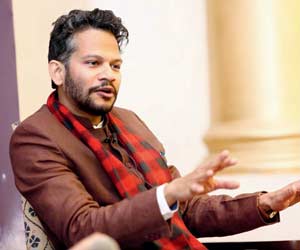INTRO: Chandrahas Choudhury is an Indian whose work has appeared in leading national and international publications including The Washing Post, Wall Street Journal and The Mint. His first novel ‘Arzee the Dwarf’ was shortlisted for the Commonwealth First Book Prize. Historian William Dalrymple remarked that his 2018 novel ‘Clouds’ marked the “blossoming of a major new talent”. In a tête-à-tête with Dipti Ranjan Das of Orissa Post, he discussed his works in detail. Excerpts:
Both of your novels portray the city of Mumbai quite vividly. You give equal importance to the city and characters. Is it intentional?
Of course it is. A city is as much a character in the world of fiction as human beings are. It is where I’ve lived most of my life and if I have to make the characters come to life. They too must reveal what they love and hate about it, they too must present their own mental and emotional maps of Bombay.
As a young writer, what advise would you give to budding writers?
I would advise them to read as much as possible and learn how to become good readers and editors of your own work. One should never submit something that is half-finished or not polished properly.
‘Clouds’ paints an accurate picture of both rural Bharat and urban India. Did you conduct any research to portray the rural society or did it occur naturally to you?
Part of the developing vision of any novelist is the awareness of realities beyond the one he or she is most familiar with by upbringing and life experience. In this case I wanted to write a novel about Bombay that gave a picture of both city and village life in India. I wrote of the villages of Odisha as I have known them in my travels.
According to you, what is the difference between commercial writing and literary fiction?
Literary fiction is connected (whether it succeeds or not) with the historic project of literature: to explore and portray human realities at the highest possible level of language and form, and to advance a distinctive reading of the world and a philosophy of life. Commercial fiction self-consciously sets less ambitious goals with the idea of reaching more readers. Both have their own place in the world of fiction and some writers are able to make their books work on both levels.
What does literary success mean to you?
It entails gaining the love of readers and respect of one’s peers. It also encompasses the feeling of pleasure one gets from reading one’s own work after he/she has worked on the text many times over and it has the sound and polish that one wanted from it.
Which literary journals do you prefer reading?
My favourite literary journal in India is The Caravan. In the wider English-speaking world, The New Criterion of America, the London Review of Books, and The Monthly of Australia are my favourites.
